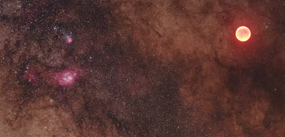Syllabus
Printable syllabus [pdf]
89355 AST s301 - Introduction to Astronomy
MTWTHF 11:30 to 1:00pm
Instructor: Judit Györgyey Ries
Office hours: RLM 13.134, Mon 10:00-11:15, Wed 2:30-3:30, or by appointment
Teaching Assistant: Chris Lindner
Weekly review session: RLM 13.132, Friday 1:30 -3:00
Course Schedule: (Subject to minor changes)
Introduction: Our Place in The Universe and the Night Sky |
||
Viewing the Universe from Earth |
||
Surveying the Universe from Earth |
||
Astronomy – Historical Overview |
||
Copernicus, Kepler, Galileo |
||
Short Quiz – The Tools of the Astronomers |
||
Our Planetary System; Understanding Gravity |
||
Terrestrial Worlds |
||
Jovian Planets Asteroids, Comets, and Dwarf Planets |
||
Formation of the Solar System |
||
Short Quiz - Light and Matter |
||
Light and Matter |
||
Other Planetary Systems; Astrobiology |
||
Our Star |
||
Surveying the Stars |
||
Short Quiz - Stellar evolution |
||
Birth of Stars |
||
Death of Stars |
||
Our Galaxy |
||
Galaxies |
||
Short Quiz – Cosmology |
||
Cosmology (Continued) |
||
Dark Matter, Dark Energy, and the Fate of the Universe |
||
The Beginning of Time |
||
Comprehensive Final Exam (In class) |
Please note: Although textbook is not required you can use “The Cosmic Perspectives” by Bennett et al., 5th or 6th ed. as a reference. One copy will be on reserve in the library.
Course requirements
As in-class interactive learning activities will be an important part of this course, attendance and participation is required, and they will count as part of your grade. The interactive discussions will help you reinforce the concepts in class, helping you complete your homework assignments and prepare you for the final exam.
Homework: A homework assignment will be handed out each Wednesday, due the following Monday at the beginning of class (except for the last week it is due Friday, before class). You are encouraged to discuss the homework and work on it together, but you must write what you turn in on your own, using your own words. Duplicate works will not receive credit; make the work your own. Late homework will be accepted for half credit until the homework is returned. If there is a reading assignment, it should be completed before the date specified. Otherwise, the lectures and tutorials will be less useful in helping you develop a deep understanding of the course topics. It is important to remember that the exams will cover material from the text readings that may or may not be discussed in class.
93 – 100 A
90 – 92.9 A-
87 – 89.9 B+
83 – 86.9 B
80 – 82.9 B-
77 – 79.9 C+
73 – 76.9 C
70 – 72.9 C-
67 – 69.9 D+
63 – 66.9 D
60 – 62.9 D-
< 59.9 F
Tests: There will be a short in-class written Quiz each Monday on the topics covered the previous week, starting with the second week (for a total of four short exams) and a final exam during the last class period. Make up exams will not be given; however, you are allowed to miss one quiz (or drop the worst, see below). They will emphasize material discussed in class, but may include topics covered only in an Internet based reading assignment. All quizzes and exams will be closed book and closed-notes, and calculators will not be allowed (or needed). It is important to remember that the exams will cover material from the assigned reading that may or may not be discussed in class.
Grades: Grades will be based on attendance and in class participation (15% of the grade), homework (25%), four short exams (30%), and the final (30%). Your lowest quiz and homework scores (one of each) will be dropped. The final exam cannot be dropped.
There will be no get extra credit assignments available for this course. Just come to class and participate.
Collaboration: The interactive lessons are designed around student collaboration, such as Think-Pair-Share activities; fill in the words, or tutorials. You are also encouraged to study and work on homework assignments with other students and to get help during office hours, but you must write out your own answers. If you copy someone's homework or let someone copy yours, both of you will receive zero credit. But you will likely find that discussions with your fellow students can help identify and solve the problems, and help with clarifying concepts.
Course Conduct
Please turn off cell phones before you enter the classroom. Also, please do not leave class early unless you have talked to me in advance, as consideration for your fellow students.
Academic dishonesty, including cheating, plagiarism, and fabrication, as defined in the U of Texas Honor Code (http://registrar.utexas.edu/archived/catalogs/gi07-08//app/appc03.html - Sec-11-802-Scholastic-Dishonesty), is serious offense for which a disciplinary proceeding may be initiated. This includes copying any homework assignments or exams. If very similar work is submitted, all parties involved will receive a zero for their assignment.

Instructor
RLM 13.134 · (512) 471-3373 · email
Office Hours
TBA
TA
Chris Lindner
Weekly Review Session
RLM 13.132, Friday 1:30-3:00